Mercedes Eng is a teacher and writer of mixed white and Chinese parentage who lives in Vancouver. Eng published two chapbooks, February 2010 (2010) and knuckle sandwich (2011). knuckle sandwich is presented as the first section of Mercenary English. She is working on a novel.
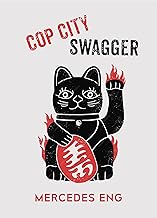
Poetry
Cop City Swagger
Vancouver: Talonbooks, 2024.
Publisher’s Synopsis (From its website)
Investigating whose safety really matters in the most expensive city in the nation, cop city swagger conducts a threat assessment of Vancouver’s police. Holding close lived and living connections to the Downtown Eastside and Chinatown neighbourhoods, Eng juxtaposes the police’s and the city’s institutional rhetoric with their acts of violence against marginalized people, presenting a panoramic media montage of structural harm and community care.
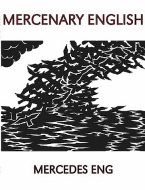
Poetry
Mercenary English
Vancouver: CUE Books, 2013.
Expanded 2nd ed. 2016 (used to be available as a PDF from the author’s Mercenary Press site, now defunct)
Vancouver: Talonbooks, 2018. 3rd ed.
PS8609 .N43 M47 2018
Publisher’s Synopsis of the Rev. ed.
In its strident and unsettling debut, Eng’s Mercenary English seized “the politics of language” from the usual handlers and reassigned them to new terrains: the colonial battlefield, the racialized/radicalized body, and the insurgent neighbourhood. This second edition of a book that quickly became something of a benchmark in Vancouver poetry and poetics now seizes its own critical frames through the inclusion of a new afterword and an expansive conversation with poet and critic Fred Moten.
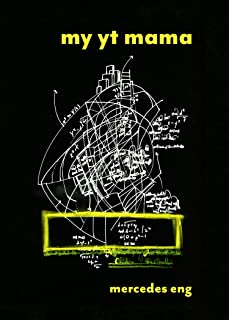
Poetry
my yt mama
Vancouver: Talonbooks, 2020.
PS8609.N43 M78 2020
Publisher’s Synopsis (From its website)
In the follow-up to her BC Book Prize-winning book of poetry, Prison Industrial Complex Explodes, Mercedes Eng continues her poetic investigation of racism and colonialism in Canada, weaponizing the language of the nation-state against itself in the service of social justice. my yt mama is a collection of poems that considers historic and contemporary colonial violence in the Canadian prairies, a settler geography and state of mind that irrevocably shaped Eng’s understanding of race as person of colour born and raised in Treaty 7 Territory in Medicine Hat, Alberta.
These poems document an education in white supremacist ideology that began in infancy and occurred everywhere: at home where the author lived with her white mother, 1261 kilometres away from her Chinese migrant father’s family; in public institutions such as the school, the library, and the museum that erase Indigenous peoples’ histories while producing the myth of the “vanishing Indians;” and in the media and entertainment in which white supremacist beauty standards are constructed and reinforced. Keenly attuned to the language of those in power, Eng exposes the violence of the English language in the colonial project, taking on the words of Canadian politician F. W. Gershaw’s history of the city of Medicine Hat as occasioned by Canada’s Centennial, to derail the superficially neutral language of yt history that mythologizes nation and city while simultaneously deriding Indigenous ways of being (ontology) and ways of knowing (epistemology) as “legends” or “myths.” Like the author herself, my yt mama is hybrid: part memoir, part history, part discourse analysis, part love letter to her mother.
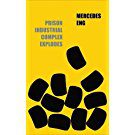
Poetry
Prison Industrial Complex Explodes
Vancouver: Talonbooks, 2017.
PS8609 .N43 P76 2017
Publisher’s Synopsis (From its website)
Combining text from government questionnaires, reports, and corporate websites, lyric poetry, and photography, Prison Industrial Complex Explodes examines the possibility of a privatized prison system in Canada leading up to Prime Minister Harper’s Conservative government passing the Anti-Terrorism Act, also known as Bill C-51. This legislation criminalizes Indigenous peoples’ attempts to protect their traditional and unceded territories from ecological destruction by classifying their actions as acts of terrorism, and it criminalizes refugees who, as victims of colonization and globalization, attempt to flee genocide and poverty yet are targeted as suspected terrorists. Simultaneously, the incarceration of Indigenous people, refugees, and people of colour is rapidly increasing as corporations eagerly court the government for private-public partnerships to fund the building of new prisons and detention centres.
The impetus for Prison Industrial Complex Explodes was the discovery of a cache of Eng’s father’s prison correspondence: letters from the federal government stating their intention to deport him because of his criminal record; letters from prison justice advocate Michael Jackson advising her father on deportation; letters from the RCMP regarding the theft of her father’s property, a gold necklace, while in transport to prison; letters from family members and friends; letters from Eng and her brother. The cold formality of the government letters in accidental juxtaposition with the emotion of the personal letters struck a creative spark that led to the writing of this long poem.
Awards and Honours
2018 Dorothy Livesay Poetry Prize (Winner)
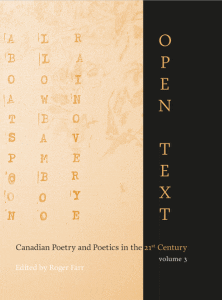
Anthology (Prose)
Eng, Mercedes. “Notes for a Subversive Sampler.” In Open Text: Canadian Poetry and Poetics in the 21st Century. Volume 3, edited by Roger Farr. (North Vancouver, BC: CUE Books, 2013), 75-74
PS8293.1 .O64 2008 v.3
Links
Publisher Talonbooks